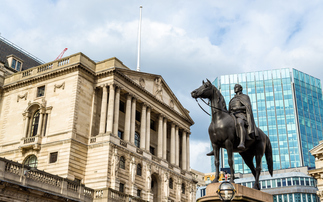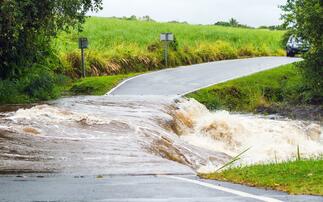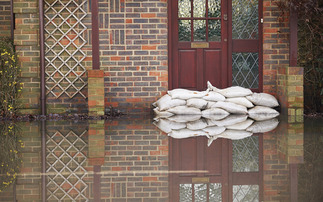Only 16 per cent of top European CEOs believe their business will be minimally exposed to climate impacts over the next five years
European CEOs are increasingly concerned about the climate risks facing their companies and are stepping up efforts to cut emissions across their operations and supply chains.
That is the headline conclusion from the latest PwC survey of over 1,250 CEOs at companies in the EU, which found that nearly a quarter believe their companies will be highly or extremely exposed to the impact of climate change in the next five years. In contrast, just 16 per cent believe they will be minimally exposed to climate impacts over the next five years.
The results suggest climate threats are now among the top risks on the radar of corporate CEOs, ranking just below macroeconomic risks, geopolitical conflict, inflation, and cyber security risks on a five year time horizon.
In response to the growing threat from climate change, EU CEOs have stepped up their efforts to mitigate the impact on their businesses and are now leading the way globally, with 75 per cent implementing initiatives to reduce their company's emissions compared to just 59 per cent in the US and 70 per cent in the Asia Pacific region.
Moreover, 71 per cent of EU CEOs are introducing new climate-friendly products or processes, compared to just 50 per cent in the US and 65 per cent in Asia Pacific.
"Our survey shows that CEOs are increasingly aware of the threat that climate change risk poses to 'business as usual'," said Andrew McDowell at PwC Luxembourg. "Climate change has joined the other major threats that CEOs need to address on an ongoing basis and so they are taking decisive steps to mitigate the impact by refocusing their priorities for action and investment. EU CEOs clearly recognise the scale of the challenge that lies ahead which is a really positive step forward and a reassuring sign that EU businesses are in good hands."
The survey also revealed that nearly two in five EU CEOs support the need for radical change in their businesses, saying that their businesses will not be viable in 10 years if they continue on their current path. Meanwhile, 57 per cent are concerned about labour and skills shortages, saying they will impact the profitability of their businesses to a large or very large extent over the next ten years. As a result 70 per cent of respondents said they are investing in upskilling their company's workforce over the coming year.
The results of the survey come just a day after the IPCC published its latest report on the climate risks faced by the world and the potential routes for decarbonising the global economy.
It warned that every part of the world is currently facing escalating climate impacts and is on track for over 3C of warming by the end of century unless urgent action is taken to slash emissions over the coming decades.
UN Secretary General Antonio Guterres hailed the report as a "survival guide for humanity", as he called on G20 economies to pull forward their net zero targets by a decade, urging industrialised nations to aim for near full decarbonisation by 2040 and for emerging economies to set a 2050 target date.








